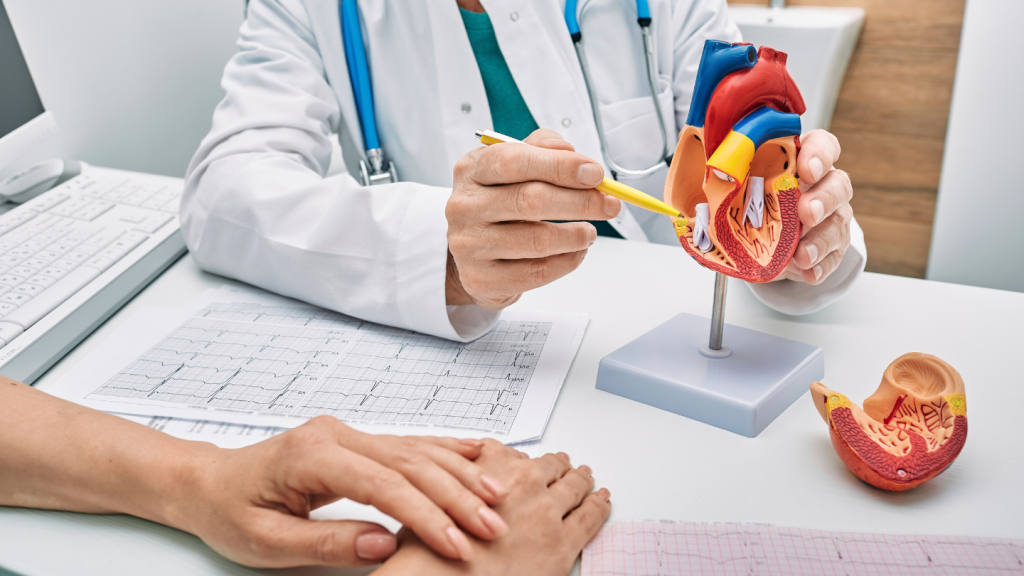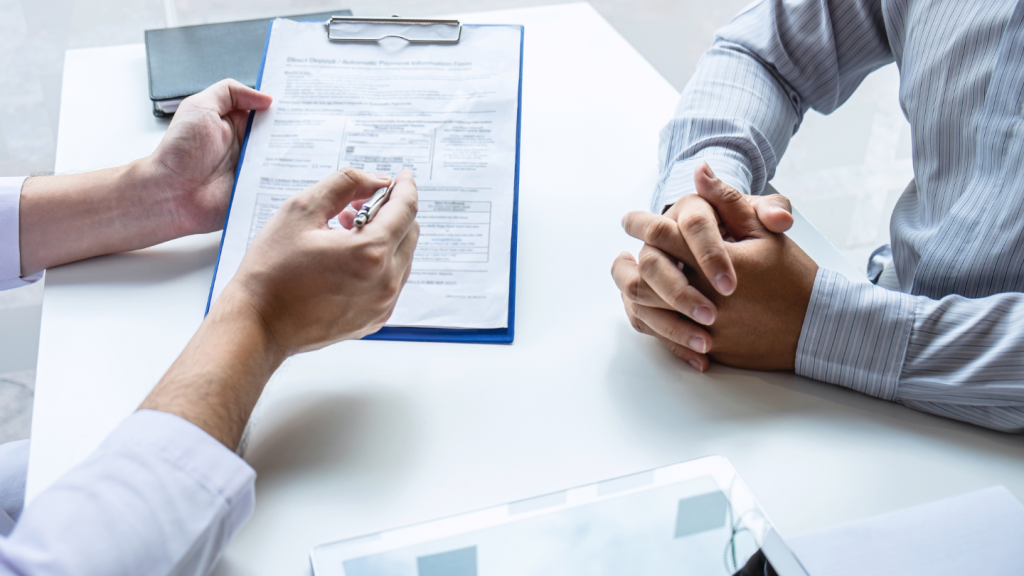
A Closer Look at Ulcer Management Post-Gastric Bypass Surgery
Bariatric surgery can deliver life-changing weight loss and improved health, but it also carries potential complications. One of the more common concerns for patients is the development of ulcers after gastric bypass. These ulcers, often referred to as marginal ulcers, form at the surgical connection between the stomach pouch and small intestine. While they can be painful, they are manageable with early detection, proper treatment, and preventative care. Understanding the symptoms, causes, and management strategies is essential for long-term health after surgery.
Understanding Ulcers After Gastric Bypass
An ulcer is an open sore in the lining of the digestive tract. In the context of gastric bypass, ulcers typically develop at the anastomosis, the connection created during surgery. This area is vulnerable because it is exposed to stomach acid and digestive enzymes. Patients may hear terms like stomach ulcer after gastric bypass or ulcer after bariatric surgery, which describe the same complication. These ulcers can appear soon after surgery or years later, making lifelong awareness important. Patients considering surgery also benefit from understanding how gastric bypass is a safe and effective procedure when combined with proper aftercare to reduce ulcer risk.
Identifying Symptoms of an Ulcer After Gastric Bypass
Recognizing the early signs of an ulcer after gastric bypass is vital to prevent complications. The most common gastric bypass ulcer symptoms include:
- Persistent abdominal pain, often described as burning or gnawing.
- Nausea or vomiting, sometimes with blood.
- Bloating, gas, or discomfort after meals.
- Black, tarry stools indicating internal bleeding.
Patients frequently ask what does an ulcer feel like after gastric bypass. The sensation often resembles severe heartburn or a sharp pain that worsens with eating. In some cases, ulcer symptoms after gastric bypass may be subtle, making it easy to confuse with indigestion. That’s why any unexplained or ongoing discomfort should be evaluated by a surgeon. Awareness of related digestive issues, such as what’s the link between acid reflux and gastric bypass, can further help patients identify overlapping symptoms early.
Causes and Risk Factors

Many patients want to know what causes ulcers after gastric bypass. There are several factors that increase risk:
- Stomach acid exposure: Even with a smaller stomach pouch, acid can still irritate the lining.
- NSAID medications: Pain relievers like ibuprofen and aspirin damage the stomach lining.
- Smoking and alcohol: Both increase acid production and delay healing.
- Infections: The presence of Helicobacter pylori bacteria can contribute to ulcer formation.
- Poor diet: Spicy, acidic, and fatty foods can irritate the surgical site.
- Stress and lack of follow-up care: Emotional and physical stress can worsen risks.
By understanding these triggers, patients can take proactive steps to minimize complications and stay on track with the recovery guidelines outlined in how long does gastric bypass surgery take and what to expect immediately after the procedure.
Read More: What Can You Never Eat Again After Gastric Bypass? Top 6 Foods to Avoid
Types of Ulcers After Surgery
While marginal ulcers are most common, other variations may occur. Anastomotic strictures can form in connection with ulcers, narrowing the digestive tract. In rare cases, complications like a gastro-gastric fistula can contribute to persistent ulceration. While the terminology may sound clinical, all these conditions share one theme: irritation of the surgical connection site. Each requires careful monitoring by a bariatric specialist, particularly for patients who have undergone complex procedures such as duodenal switch vs gastric bypass, where different anatomical changes influence risk..
How to Treat an Ulcer After Gastric Bypass
Patients often ask how to treat an ulcer after a gastric bypass. Treatment usually involves a combination of medical and lifestyle changes:
- Medications: Proton pump inhibitors (PPIs) reduce acid production and give ulcers time to heal. If H. pylori infection is present, antibiotics are prescribed.
- Endoscopic evaluation: Doctors may use a scope to confirm the diagnosis and assess healing.
- Dietary changes: Avoiding acidic, fatty, or spicy foods supports recovery.
- Lifestyle adjustments: Quitting smoking, avoiding NSAIDs, and reducing alcohol intake are essential steps.
- Revision surgery: In severe or recurrent cases, revisional surgery may be needed, though this is rare.
Healing time varies, but with consistent care, most ulcers resolve within weeks to months. In some cases, additional bariatric procedures may be considered, such as can you get a lap band after a gastric bypass, which underscores the importance of individualized treatment plans.
Preventing Ulcers After Gastric Bypass
Prevention is one of the most effective strategies for reducing the risk of ulcers after gastric bypass. Patients are advised to avoid NSAID medications such as ibuprofen or aspirin, since these drugs can damage the stomach lining and lead to complications. Discussing pain management alternatives with a doctor is the safest approach. Following a post-surgery diet plan with smaller, balanced meals also helps protect the stomach pouch and minimize irritation. Lifestyle choices matter as well, quitting smoking and limiting alcohol intake both play major roles in lowering the chance of developing a stomach ulcer after gastric bypass. Consistently taking prescribed supplements and acid-reducing medications provides added protection. Finally, keeping regular follow-up appointments with a bariatric surgeon allows early detection of potential issues and helps patients stay on track. Those who follow these guidelines closely are far less likely to experience recurrent ulcer after bariatric surgery.
When to Consult Your Surgeon

Recognizing the early signs of an ulcer after gastric bypass and seeking timely medical attention can prevent serious complications. Patients should call their surgeon if they develop severe or persistent abdominal pain that does not improve. Warning signs such as vomiting blood or material that looks like coffee grounds, as well as black or bloody stools, indicate internal bleeding and should never be ignored. Difficulty eating without discomfort or symptoms that continue despite prescribed medications also suggest complications. Prompt medical evaluation ensures that gastric bypass ulcer symptoms are treated quickly, reducing the risk of bleeding, perforation, or strictures.
Lifestyle Tips for Healing and Long-Term Management
Healing a stomach ulcer after gastric bypass goes beyond medications; daily habits also make a significant difference. Eating slowly and avoiding overeating reduces stress on the small stomach pouch created during surgery. Staying hydrated with water or non-caffeinated, non-carbonated drinks helps soothe the digestive system and prevent further irritation. Many patients benefit from keeping a food journal to identify trigger foods that worsen symptoms of an ulcer after gastric bypass. Incorporating stress management techniques such as mindfulness, yoga, or light exercise also supports recovery. For added accountability, bariatric support groups can provide encouragement and shared strategies for long-term success.
The Bottom Line
Ulcers after gastric bypass are a potential complication but can be managed with proper care. Recognizing gastric bypass ulcer symptoms early, understanding what causes ulcers after gastric bypass, and knowing how to treat an ulcer after gastric bypass are all key steps in protecting long-term health. With medical guidance and lifestyle adjustments, most patients recover fully and avoid recurrence.
Managing an ulcer after bariatric surgery requires specialized care. Ascension Saint Agnes Bariatric Surgery offers expert evaluation, treatment, and prevention strategies tailored to each patient’s needs. Their team provides lifelong support to ensure safe recovery and lasting weight loss success. Whether you’re considering bariatric revision surgery, an upper endoscopy, or advanced options like robotic surgery or a gastric balloon, their team is equipped to handle your unique situation. Contact us today for personalized guidance and care tailored to your needs.
Frequently Asked Questions
What causes ulcers after gastric bypass surgery?
Ulcers typically form where the stomach pouch connects to the small intestine. Common causes include stomach acid exposure, smoking, alcohol, NSAID use (like ibuprofen or aspirin), and Helicobacter pylori infection. Poor dietary habits and stress may also increase risk.
What are the symptoms of an ulcer after gastric bypass?
Patients may experience persistent abdominal pain, nausea, vomiting, bloating, or black stools. Pain often feels like intense heartburn or a gnawing sensation that worsens after eating. Any bleeding or severe discomfort requires immediate medical evaluation.
How are ulcers treated after gastric bypass?
Treatment involves acid-reducing medications such as proton pump inhibitors, antibiotics if infection is present, and lifestyle changes like avoiding NSAIDs, alcohol, and smoking. Dietary adjustments and follow-up endoscopy ensure proper healing.
Can ulcers after gastric bypass be prevented?
Yes. Avoiding NSAIDs, quitting smoking, limiting alcohol, eating small, balanced meals, and taking prescribed supplements or acid reducers can significantly reduce risk. Regular follow-ups with a bariatric surgeon also support prevention.
When should I contact my surgeon about ulcer symptoms?
Seek immediate medical care if you experience vomiting blood, black or tarry stools, severe abdominal pain, or ongoing nausea that does not improve with medication. Early detection prevents complications like bleeding or perforation.